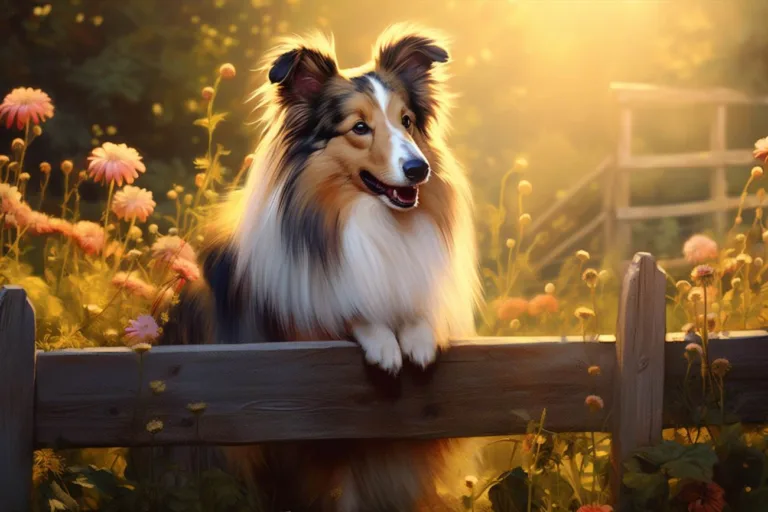The Shetland Sheepdog, often affectionately referred to as the ”Sheltie,” is a remarkable and endearing dog breed known for its intelligence, agility, and unwavering loyalty. In this comprehensive article, we will delve into the world of Shetland Sheepdogs, exploring their history, characteristics, and what makes them such a beloved companion for dog enthusiasts. Whether you are considering adding a Sheltie valp (Shetland Sheepdog puppy) to your family or interested in Shetland Sheepdog omplacering (re-homing), this article aims to provide you with valuable insights into this charming breed.
The shetland sheepdog’s origins
The Shetland Sheepdog originated in the Shetland Islands, a remote and rugged archipelago situated in Scotland. This breed’s roots can be traced back to the 19th century when it was developed by crossing small specimens of the Rough Collie with other small, agile, local herding breeds. The primary goal was to create a dog that was well-suited for herding and protecting the island’s valuable Shetland sheep.
Physical characteristics
Shetland Sheepdogs are known for their distinctive appearance. They are small to medium-sized dogs with a well-proportioned body covered in a luxurious double coat. Their expressive almond-shaped eyes exude intelligence and warmth, and their ears are small and sharply pointed. One of the most striking features of the Sheltie is its flowing, feathered tail that curls gracefully over its back.
The Shetland Sheepdog’s coat comes in various colors, including sable, black, and blue merle, often with white markings. They are well-known for their lush mane, which gives them an elegant and regal appearance.
Temperament and personality
Shetland Sheepdogs are renowned for their hängiven (devotion) to their families. They are incredibly loyal and affectionate dogs that form strong bonds with their owners. These dogs are known for their intelligence and agility, making them excellent choices for various dog sports and activities.
Shelties are also known for their alertness and protective instincts. While they are not aggressive, they will readily alert their owners to any potential threats or intruders with their distinctive bark.
Training and exercise needs
Due to their high intelligence, Shetland Sheepdogs thrive on mental stimulation and training. They excel in obedience training and enjoy learning new tricks and commands. Regular exercise is essential for this breed to keep them happy and healthy. Daily walks, playtime, and engaging activities are a must to prevent boredom and ensure they remain well-behaved companions.
Shetland sheepdog korthårig
While the standard Sheltie has a lush double coat, there is a variety known as ”Shetland Sheepdog Korthårig,” which translates to short-haired Shetland Sheepdog. This variant has a shorter, less dense coat that requires less grooming. It offers a low-maintenance option for those who love the breed but prefer a more straightforward coat care routine.
Shetland sheepdog valp
Shetland Sheepdog puppies, often referred to as ”Shetland Sheepdog valp,” are irresistibly cute and playful. Raising a Sheltie valp requires patience and consistent training to help them grow into well-behaved adults. Proper socialization from an early age is crucial to ensure they are comfortable around people and other pets.
Shetland sheepdog omplacering
For those considering Shetland Sheepdog omplacering, it’s essential to understand that Shelties can adapt to new environments and families with proper care and attention. Re-homing a Shetland Sheepdog can be a rewarding experience, offering a loving home to a dog in need of one.
Frequently asked questions
Q: Are Shetland Sheepdogs good with children?
A: Yes, Shetland Sheepdogs are generally excellent with children. Their gentle nature and protective instincts make them great family pets.
Q: Do Shetland Sheepdogs shed a lot?
A: Yes, Shelties do shed, especially during seasonal changes. Regular grooming can help manage their shedding.
Q: How long do Shetland Sheepdogs live?
A: Shetland Sheepdogs typically have a lifespan of 12 to 15 years when provided with proper care and nutrition.
Q: Are Shetland Sheepdogs easy to train?
A: Yes, Shetland Sheepdogs are highly trainable due to their intelligence and eagerness to please. Consistent positive reinforcement training methods work best.
Q: Can Shetland Sheepdogs live in apartments?
A: Yes, Shelties can adapt to apartment living as long as they receive sufficient exercise and mental stimulation. Regular walks and playtime are essential.
In conclusion, the Shetland Sheepdog is a captivating breed that offers unwavering loyalty and devotion to its owners. Whether you are considering a Shetland Sheepdog valp, exploring Shetland Sheepdog omplacering, or simply intrigued by this charming breed, Shelties have a special place in the hearts of dog lovers worldwide.
Se även nedan:






